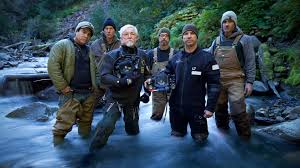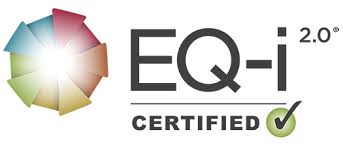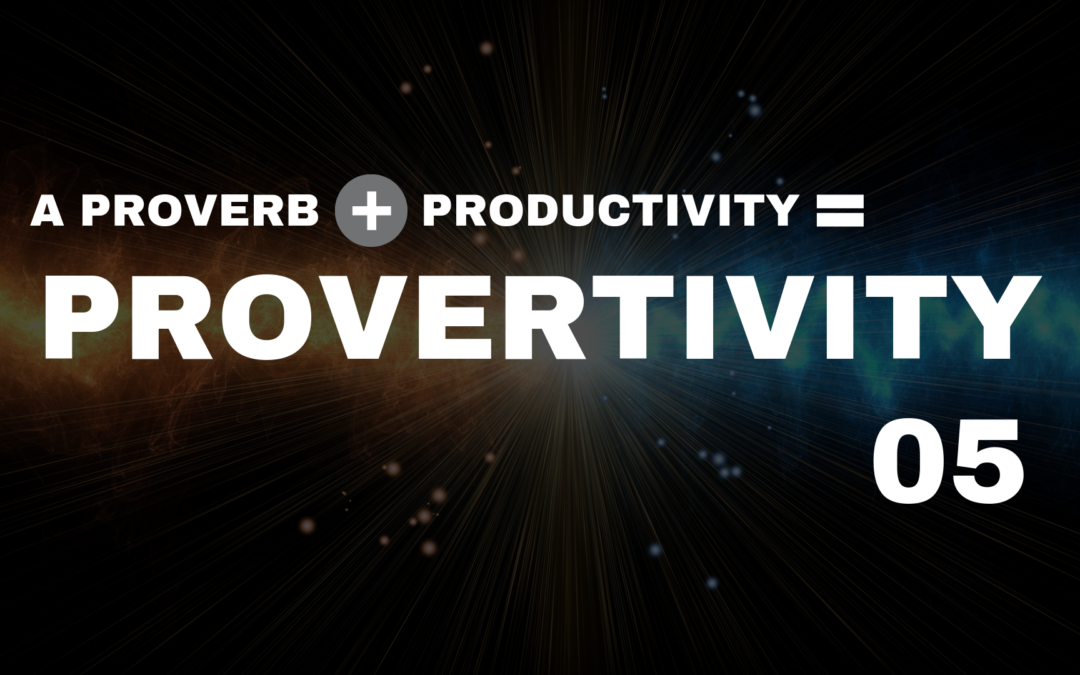
by James Duvall | Jan 2, 2020 | Personal Development, Reading, Self Leadership
I often am asked about the books I read. So, here is the list of books that I read in 2019. The ones that stand out, I have italicized and put in bold.
Physical Books
Irresistible — Andy Stanley
Ego is the Enemy — Ryan Holiday
Playing to Win — Langley Martin
Transforming Prayer — Daniel Henderson
Moonwalking With Einstein — Joshua Foer
The Seven Principles for Making Marriage Work — John Gottman
Work Rules — Laszlo Bock
Lead with Story — Paul Smith
The Checklist Manifesto — Atul Gawande
Excellence Wins — Horst Shulze
Find Your Way — Carly Fiorina
Little Things Matter — Todd Smith
Leadershift — John C. Maxwell
Fully Alive — Ken Davis
Mastermind Dinners — Jayson Gaignard
The Seven Decisions — Andy Andrews
Chop Wood, Carry Water — Joshua Medcalf
Pound the Stone — Joshua Medcalf
Transformational Leadership — Joshua Medcalf
The Connector’s Advantage — Michelle Tillis Lederman
The Connector’s Way — Patrick Galvin
Burn Your Goals — Joshua Medcalf, Jamie Gilbert
The Future of Leadership — Joshua Medcalf and Seth Mattison
Hustle — Joshua Medcalf
Ego is the Enemy — Ryan Holiday — (so good I read it twice)
The Bottom of the Pool — Andy Andrews
Atomic Habits — James Clear– (read in 2018 as well. So Good!)
After 50 Years of Ministry… — Bob Russell
The Obstacle is the Way — Ryan Holiday
The Storyteller’s Secret — Carmine Gallo
Start With Your People — Brian Dixon
Bet On Talent — Deanne Turner
The Big Lead — Gay Hendricks
The Power of Positive Leadership — Jon Gordon
The Pioneers — David McCullough
God and Starbucks — Vin Baker
How To Lead In a World of Distraction — Clay Scroggins
Bigger Faster Leadership — Samuel Chand
Know What You’re FOR — Jeff Henderson
Leading Change Without Losing It — Carey Nieuwhof
The 100X Leader — Jeremie Kubicek & Steve Cockram
Indistractable — Nir Eyal — 12.18.19
The Ruthless Elimination of Hurry — John Mark Comer
Extraordinary Influence — Tim Irwin
5 Gears — Jeremie Kubicek & Steve Cockram
5 Voices — Jeremie Kubicek & Steve Cockram
Audio Books
12 Rules for Life: An Antidote to Chaos — Jordan B. Peterson
Are You Fully Charged? — Tom Rath
I Declare War — Levi Lusko
Mastery — Robert Greene
Digital Minimalism — Cal Newport
Lead Yourself First — Raymond Kethledge
Couples Guide to Emotional Intelligence — Jamie. Bryce
The Dichotomy of Leadership — Jocko Willink & Leif Babin
Take Charge of Your Life — Jim Rohn
The Art of Exceptional Living — Jim Rohn
The Power of Ambition — Jim Rohn
What the Most Successful People Do Before Breakfast — Laura Vanderkam
Work Clean — Dan Charnas
Stress Less Accomplish More — Emily Fletcher
The Alter Ego Effect — Todd Herman
Thanks for the Feedback — Douglas Stone and Shelia Heen
Scaling Up Excellence
The Traveler’s Gift — Andy Andrews
I Will Teach You To Be Rich — Ramit Sethi
Super Thinking — Gabriel Weinberg, Lauren McCann
Adversaries into Allies — Big Burg
Every Tool’s a Hammer — Adam Savage
Range — David Epstein
The Wright Brothers — David McCullough
Legacy — James Kerr
The Promise of a Pencil — Adam Braun
The Culture Code — Daniel Coyle
Shoe Dog — Phil Knight
Stillness is the Key — Ryan Holiday
The Lost World of Genesis One — John Walton
1776 — David McCullough
Ten Arguments for Deleting Your Social Media Accounts Right Now — Jaron Lanier
You Are Awesome — Neil Pasricha
The Lost World of Adam and Eve — John Walton, N.T. Wright
So that is the list. I already have a stack of books for 2020, but I would love suggestions for books that you think I should read.
Charles “Tremendous” Jones said, “You will be the same person in five years as you are today except for the people you meet and the books you read.” I know the books I have read this past year have changed me, and I look forward to continuing to grow this new year. Wishing the same for you!

by James Duvall | Jan 1, 2019 | Personal Development, Self Leadership
It’s a new year. Are you ready for it? Have you already made plans, created resolutions, set goals for what you want to accomplish?
In the last installment of Provertivity, “More Than A Wish,” I gave three steps you can take to set yourself on the path of success for this new year. If you followed what was prescribed, you should have a pretty rock solid plan entering into this year.
There’s just one problem. Having a plan and carrying out that plan are two different animals. Helmuth von Moltke, a Prussian military commander, said: “No battle plan ever survives first contact with the enemy.” Unfortunately, the first enemy that you are going to face, stares at you every time you look in a mirror. You are going to come to a face to face altercation with your own inertia and natural resistance to change. What you do to overcome these self-defeating enemies will determine how successful your plan will be.
Here are two strategies that I have personally used, that have helped me overcome myself and regularly accomplish my goals.
Overload your effort at the start
How we start something new makes or breaks everything that comes after. This is true in relationships, it is true in business, and it is true with new goals and habits. When we start anything new, it is going to feel strange and uncomfortable. That’s a big problem because we are wired to resist things that are strange and uncomfortable.
To get past the doubt, you’re likely to feel at the beginning of a new habit or discipline, fill your time with as much activity as possible related to that new habit or discipline.
There are probably a few of us who have made getting in better shape part of our plan for this year. You may have already signed up for a gym membership. Did you know that only around twenty-nine percent of people who sign up for a gym membership are actively using their membership after six months?
But, here’s the good news. Studies have shown that people who use their gym more than eight times within the first month of signing up tend to keep going. By overloading effort at the beginning, when their enthusiasm was high, they saw some improvement and some success and continued going.
Did you know that when space shuttles launched, they used two million pounds of solid fuel and 500,000 gallons of liquid fuel to get into orbit. Guess how much it uses for the rest of a mission. Less than 300,000 gallons of liquid fuel. Once the space shuttle reached orbit, the momentum from liftoff and the gravitational pull of the earth would keep it in orbit for the rest of its mission.
Use this as a lesson for any new activity or habit you are trying to incorporate into your plan for this year. Give as much effort as you can for the next 30 days until you break through the inertia. Once you do, you will create momentum and need to use less energy to keep the new activity or habit moving forward.
[et_bloom_inline optin_id=”optin_3″]
Win your fight through
I learned this concept after reading Jason Selk and Tom Bartow’s book “Organize Tomorrow Today.” It is language that my wife Lisa and I use all the time. It is common for us to celebrate winning our fight through when we know that one of us has finished a habit or daily discipline that we did not want to do that day.
We all have days when we just don’t have the desire to accomplish the habits we have put as part of our plan. This is when you have to struggle against yourself and win your fight through. When the alarm goes off (5 a.m. for me), and hitting the snooze alarm would be so easy, win your fight through. When it’s raining outside and getting soaking wet to accomplish a morning run does not seem worth it, win your fight through. When the calories in one homemade dessert that a coworker brings in the office don’t seem like a big set back to your weightless plan, win your fight through.
It’s not going to be enough only to do the work when you feel inspired or excited about your goals. To reach your envisioned tomorrow, you will have to work on your goals even when you’d rather be doing anything but working on your goals. To win, you have to finish. Napoleon Hill said it well, “Effort only fully releases its reward after a person refuses to quit.”
The quickest way to create momentum is to start! Start today. Overload your effort. When you don’t feel like doing it, remind yourself, “I have to win my fight through.”
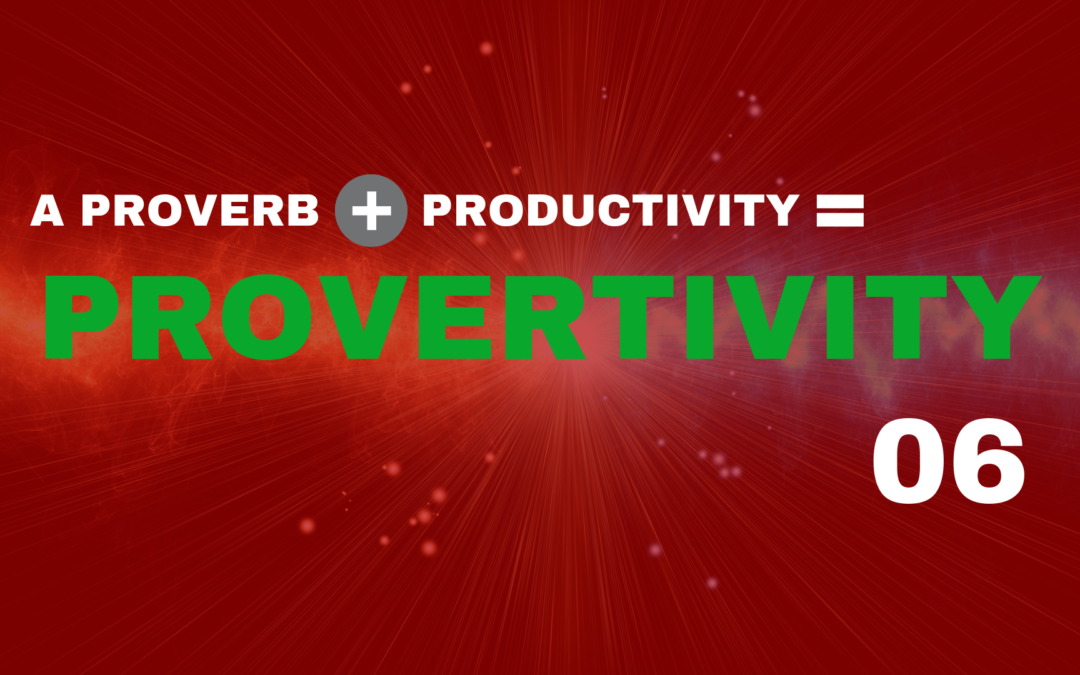
by James Duvall | Dec 19, 2018 | Personal Development, Self Leadership
Three Steps To Making 2019 Your Most Significant Year of Personal Growth
Can you believe that 2018 is coming to an end and a new year is right around the corner? For this last installment of Provertivity, I thought I would give you a challenge for the new year. Why not make 2019 the year of your most significant personal growth? Maybe that personal growth will come through learning a new skill. Perhaps it will be the result of getting in the best shape of your life. Maybe it will be taking up a new hobby or interest that will stretch you.
Sadly, too many people start a new year with good intentions only to putter out a few weeks later due to lack of progress and or willpower. I know what that is like. For many years I did the same thing. It was only a few years ago, I started going into a new year with more than a resolution, I started the year with a real plan for growth.
Our proverb says,
“Careful planning puts you ahead in the long run; hurry and scurry puts you further behind.”
Proverb 21:5
I want you to consider taking last 7 to 10 days of this year and make a careful plan for how you are going to grow in the new year? Here are three steps you can take to set yourself on the path of success for the new year.
1. Evaluate where you are
What does your life look like? Are you who you want to be physically, financially, relationally and spiritually? When you look at yourself in the mirror (physically or metaphorically), are there things that you want to change? David Horsager, in The Daily Edge, writes, “If you do not know where are today, you cannot know where you would like to be in the future.” Your future success starts with your present assessment of who you are.
What does your life look like? Are you who you want to be physically, financially, relationally and spiritually? When you look at yourself in the mirror (physically or metaphorically), are there things that you want to change? David Horsager, in The Daily Edge. writes, “If you do not know where are today, you cannot know where you would like to be in the future.” Your future success starts with your present assessment of who you are.
2. Envision who you want to be
Visualize what you want your life to look like. What would it look like to be in the best shape of your life? What would financial freedom really mean for you and your family? A fantastic relationship with your spouse; what does that look like? Get a picture, in your mind, of who you want to be. Stephen Covey says to start with the end in mind. That picture in your mind is the end (as far as you can envision it now). So, the more detailed the vision, the better.
[et_bloom_inline optin_id=”optin_3″]
3. Build your plan to become that person
This is where careful planning comes into play. It is time to turn your envisioned tomorrow into specific strategies. I want to share two building blocks for your careful planning.
Building Block #1: Goals!
The first building blocks are goals. Set goals as the targets to determine your success. Goals are the standards of measurement to monitor our performance and assess the need for improvements or adjustments. Study after study has shown that having a way to evaluate one’s performance leads to greater happiest and success. Surprisingly, according to a Harvard study, 83% of the U.S. population does not have specific goals for their lives.
Here are four things to think about when setting your goals. First, set specific goals. Make your goals crystal clear and well defined. “I am going to read more this year.” is not very clear or defined. What are you going to read? What is your measurement for more? Defining your goal more clearly could look like, “I am going to read more this year by reading at least 3 books each month for a total of at least 36 books.”
Secondly, set challenging goals. Michale Hyatt teaches that there are three zones of goal-setting; the comfort zone, the discomfort zone, the delusional zone. If you set your goals too low, you may produce poor effort. However, if you set your goals too high (delusional zone), you may produce no effort. You set goals that are going to stretch you just outside of your comfort zone into some discomfort. If you push yourself to uncomfortable limits today, it will make it possible for you to handle more significant challenges tomorrow.
As a side, research has found that when people set specific and challenging goals, it leads to higher performance 90 percent of the time.
A third thing to think about when setting your goals is to establish “to-be” goals instead of “to-do” goals. One of my favorite teachers, Jim Rohn, would say “Set the kind of goals that will make something of you to achieve them.” When you determine what you want to be. You will want to set goals to make you that person. Going back to our reading illustration, what if you were to add the framework of “To be a reader, I am going to read more this year by reading at least 3 books each month for a total of at least 36 books.” Or, “to be financially free, I am going to pay off all my debt…”
The last thing to think about when creating your goals is to write them down. Statistics show that people who write down their goals have over an 80% higher success rate of achieving them. It may surprise you to learn that only about 3% of adults have bothered to put their goals on paper?
“The faintest ink is more powerful than the strongest memory”
Chinese proverb
Building Block #2: Habits
Habits are regularly performed actions that break goals down into manageable steps. Some of your goals are only going to be achieved by the consistent doing of daily, weekly and monthly habits. Aristotle said, “We are what we repeatedly do. Excellence then is not an act, but a habit.”
I like to process my goals through three types of habits. These may be beneficial in your careful planning.
The first kind is linchpin habits. These are also referred to as keystone habits. These habits have the power to set other habits in motion. Like a domino effect linchpin habits produce a number of positive outcomes. A few types of linchpin habits include things like exercise, a daily quiet time, reading, getting enough sleep, saving money.
The second type of habit that I process my goals through is support habits. These habits do what they say they do, they support another habit. A simple example of a support habit would be setting out exercise clothes every night before you go to bed. This encourages the habit of daily exercise. Creating an eating plan for the next day is a support habit for healthy eating habits.
The last type of habit that I process in my plan is to “eat the frog” habits. Mark Twain is quoted for saying, “If it’s your job to eat a frog, it’s best to do it first thing in the morning. And if it’s your job to eat two frogs, it’s best to eat the biggest one first.” We all have responsibilities we have to do on a regular basis, but they are not exciting or things we want to do. So, make them a habit of accomplishing, and do them as early in the day as possible and the biggest one first. Brian Tracy has a great book Eat That Frog: 21 Great Ways to Stop Procrastinating and Get More Done in Less Time that offers excellent insight into this type of habit.
Here is the last thing to remember when it comes to your habits. Your habits are the process, or system of your plan to accomplish your goals. Great athletes get this. For example, Olympic athletes work the process of regular habits. They are less concerned about how far they have to go and more concerned about building the skills that will get them there.
To be successful with your goals, create a schedule where you perform the same habits on a regular basis at the same time every day, week or month. Consistency is the secret to achieving your goals. Track of your progress on a regular basis and try to make small improvements consistently. Regularly review your goals and progress and adjust your habits according to what you have experienced and any changes in your desires.
So, before the clock strikes midnight on December 31, take some time for Careful planning which will put you ahead in the long run. Don’t hurry and scurry into the New Year. It will only set you further behind.
I pray God’s best for you and your family during this season. Have a Merry Christmas and a blessed New Year working on the new you. As always, live intentionally, lead effectively and last by continuing to increase your leadership longevity.
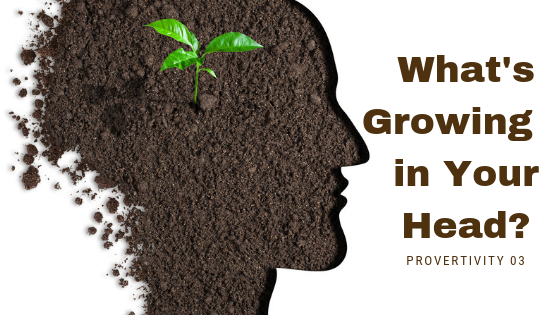
by James Duvall | Sep 17, 2018 | Personal Development, Self Leadership
When I was a kid, my family had a large garden down on my uncle Bob’s property. We would go there on a regular basis to tend to the garden. My most vivid memories are of the times we would go to gather or reap the harvest, picking the ripe vegetables off the vines, digging up the potatoes from the earth and, one of my favorites, breaking off and eating stalks of rhubarb.
What I don’t remember as well is going to the garden to till the soil, plant the seeds or fertilize the crop. However, even though I can’t recall it, it still happened. My mom and dad planted green beans, and green beans grew. They planted tomatoes, and tomatoes grew. The proof of what was sown into the ground was the fruit of what was reaped from the garden.
Our proverb teaches this same principle. If you and I don’t make efforts to acquire knowledge, then we can not expect to have it, and if we don’t put the knowledge we have to use, we shouldn’t expect to gain anything from it. We have to till, plant and fertilize the garden of knowledge to experience the fruit of it in our lives. And like the garden of my childhood, this is a continual process of tilling, planting, fertilizing, and reaping.
It is widely taught that the discipline of learning separates great leaders from the rest. In Disrupt You!: Master Personal Transformation, Seize Opportunity and Thrive in the Era of Endless Innovation, author Jay Samit proposes that in the 21st century, lifelong learning is no longer a luxury but a necessity for employment. Being a life-long learner does not happen by chance. It takes great determination to stay teachable. Dr. John Maxwell, in his book, Sometimes You Win-Sometimes You Learn, says, “Teachability [is] the intentional attitude and behavior to keep learning and growing throughout life.” Cultivating knowledge through continual learning adds so many benefits to one’s life. Here are a few to consider.
Leaning keeps your mind young:
The brain is a muscle and learning exercises the muscle to keep it growing and vibrant. There have been studies that show reading keeps your mind active, preventing it from becoming weak and unhealthy. Mental stimulation (through learning) can affect the onset of dementia and Alzheimer’s disease. As John Maxwell says, “You are too old only when you stop learning and improving.”
One of the secrets to staying young is always to do things you don’t know how to do, to keep learning. ~ Ruth Reichl
Learning increases creativity:
Creativity at its core is problem-solving. Creativity requires regular feeding. Bernhard Schroeder in his book Simply Brilliant: Powerful Techniques to Unlock Your Creativity and Spark New Ideas says, “To be creative, you have to consciously believe you are creative. You have to have a growth mind set, one that is in a continual state of learning or acquiring more knowledge and open to new ideas.” Aggressively looking for new insights, experiences and creative expressions will increase creative output and problem-solving.
Learning keeps you ready for the future:
Let’s face it, the skills and training that are needed in the years to come are most certainly going to be different than what is required today. David Russell Schilling, in a 2013 article references the “Knowledge Doubling Curve” which shows that until 1900 human knowledge doubled approximately every century. By the end of World War II, knowledge was doubling every 25 years. He states that as of 2013, on average human knowledge was doubling every 13 months. With the advancement of the internet and globalization, it could lead to the doubling of knowledge every 12 hours. What you know today will not be enough tomorrow.
One of the things that limit our learning is our belief that we already know something. ~ L. David Marquet
So we have established that being a life-long learner is the way to cultivate the garden of knowledge. We can see that leaders who deliberately pursue learning, separate themselves from the average. And, we have looked at three of the benefits of being a life-long learner. So how do you do it? How do you consistently and strategically put yourself in a place of learning? I am convinced that learning opportunities are abundantly accessible. Here are three opportunities to fertilize your learning.
Learning through Experiences (Failure)
Everything we experience, the highs and lows, the win and losses, successes and failures are opportunities to learn and grow. When you keep this mindset, you can treat failure as a learning experience. Thomas Edison did not fail over 10,000 times at creating the light bulb, he “just found 10,000 ways that won’t work.”
Tim Irwin, Ph.D. in his book Run With the Bulls Without Getting Trampled: The Qualities — You Need to Stay Out of Harm’s Way and Thrive at Work (I highly recommend) teaches that one the Critical Success Factors is the Ability to Learn. Irwin presents three principles of learning from experience: One, examine past situations to determine what worked and what did not. Two, identify the causes for why specific strategies worked or did not. Three, determine whether or not the lessons may apply to an audience broader than just oneself.
Remember, everyone makes mistakes, even the most successful. The key is not making the same mistake twice, learning and growing and becoming a better person because of them. If you don’t honestly evaluate your mistakes, you risk repeating the same mistakes and not learning from them.
The worst thing that could happen to you today could lead to the best thing that happens tomorrow. ~ John Maxwell
Learning Through Self-Awareness
Scottish poet Robert Buchanan wrote, “O would some power the giftie gie us, to see oursels as others see us.” Simply translated, “If only we had the power to see ourselves in the same way that others see us.” Aristotle taught, “Knowing yourself is the beginning of all wisdom.” If you want to develop and grow as a leader, then there needs to be a passionate pursuit of understanding yourself; the good, the bad and the embarrassing. You need to be aware of your strengths and weakness and how to lessen the impact of the weaknesses and leverage the strengths.
Nearly twenty years ago, my good friend and pastor Todd Mullins gave me great advice. He told me, the way people perceive me is their reality of me. Even if it is not entirely true of who I am. That set me on a course to understand and be aware of my blind spots. Blind spots are the tendencies in ourselves, that we are not aware of.
I am a huge proponent that assessments are powerful for self-awareness and identifying blind spots. A few years ago, I started compiling a document of all my assessments. I call it my Leadership Profile. It keeps me aware of my strengths and weakness, it reminds me of my blind spot tendencies, and it guides my leadership development goals. Some of the assessment tools that I have found helpful are, EQi, MBTI®, DISC, and CliftonStrengths.
A second way to learn through self-awareness is by receiving feedback. Honest feedback from trusted people is priceless. Once you know the truth, you can do something about it. So, don’t wait for people to offer feedback, ask for it. Ask people you trust to share specific things you could do to improve. Remember, the people giving feedback may feel as vulnerable sharing it as you do receiving it. So, make it as easy as possible. At the end of each year, I send out a feedback questionnaire to those who work closely with me. It asks for feedback on where they have seen growth in my life and what area I can improve on. I use the feedback as part of my annual goal setting strategy.
Here is a question that you can ask those that you trust. “If you see me doing anything that would drive my life, family or organization off a cliff can I trust you to tell me way in advance before it destroys me?”
It takes humility to seek feedback. It takes wisdom to understand it, analyze it and appropriately act on it. ~ Stephen Covey
Learning Through Resources
Today is a great time to be a learner. There is an unlimited supply of resources from which to learn. With the advent of Amazon, Barnes and Noble, Kindle and Audible, there is instant access to books on any and every subject. Numerous sites offer summaries of books, giving the most important content. The internet provides immediate access to teachings from some of the greatest teachers and thinkers. Now it is even possible to get an entire college education without ever stepping foot on a college campus. However, these resources have to be used to be of any benefit.
I want to challenge you to continually learn and improve in your chosen field. Brian Tracy, in his book The 21 Success Secrets of Self-Made Millionaires: How to Achieve Financial Independence Faster and Easier Than You Ever Thought Possible says to think of your mind as a muscle, which develops more and more as you use it. The more you learn, the more you can learn. In the book Tracy gives his three keys to lifelong learning:
1. Spending at least 30 to 60 minutes a day reading in your field.
(Check out my post IF I KNEW THEN WHAT I KNOW KNOW where I give multiple benefits of having a consistent discipline of reading.)
2. Listening to audio programs in your car, so you learn on the road. (#drivetimeuniversity)
3. Attending as many courses and seminars in your field as possible.
So, if you want to harvest knowledge you have to garden your mind. Learning through failure, self-awareness, and resources will give you the tools to cultivate the garden. To wrap this issue of Provertivity up, let me challenge you to be a life-long learner with three suggestions.
Eliminate Excuses
Sean Stephenson in his book Get Off Your “But”: How to End Self-Sabotage and Stand Up For Yourself writes, “The only thing that has ever held you back from having what you want in life is the size of your BUT. Sure, I’d like to change, BUT; I’m too old/too young, I’m too short/too tall, I’m too fat/too skinny, I’m not pretty/handsome enough, I’m not smart enough, I’m from a broken home, I have a learning disability. Our BUTS are huge.”
Stay Curious
Michael Hyatt wrote, “Curiosity is vital for leaders because learning is vital for leaders. I’m constantly reading, experimenting, and playing with new ideas and fresh approaches. Without curiosity, my leadership would have stagnated decades ago. Without the habit of curiosity, yours will too.”
Teach What You Learn
I have found that the best way to continue growing is by teaching what I have learned. Teaching cements learning through action. No, you don’t have to gather a class of students to teach, it could be as simple as sharing your learnings with a friend or with a team that you lead.
I hope you have found this helpful. If so, please share it with your friends and family. I would love to hear your comments and feedback. Until next time, live intentionally, lead effectively and last by continuing to increase your leadership longevity.
[et_bloom_inline optin_id=”optin_3″]

